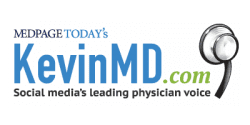Starting A Health Plan From Scratch: Good luck, Dr. Gawande!
By Paul Pender MD
Published on Linked-In June 22, 2018
Atul Gawande MD, a practicing surgeon and best-selling author, has been named CEO of the yet-to-be-formed health care plan envisioned by leaders of three of the most prominent companies in America: Amazon, Berkshire Hathaway and JP Morgan Chase & Co. Jeff Bezos, Warren Buffett and Jamie Dimon decided that there had to be a better way to insure their workers and to reduce costs at the same time. They have a history of success in getting what they want. The challenge for them, and for Dr. Gawande, is looking out for a million workers and for those who provide their care. What will that challenge entail?
Building out the infrastructure from a patient-centered approach is essential. If you ask practicing physicians how people can become healthier, the answer is often by making appropriate lifestyle changes. You can’t necessarily alter your genetics (although that is now becoming available for some forms of blindness) but you can stop smoking, maintain good weight, exercise and consume items that are less harmful to your overall health. There will be resistance to interfering with personal freedoms to deal with obesity, but carrots and sticks will apply. For example, the insured employee should pay a lower percentage for his or her contribution to premium if certain healthy behaviors are observed, and a higher percentage of premium if they are not. It is unrealistic to reward someone simply for joining a health club; instead, it is the result of such membership (e.g. weight loss) that warrants the reward. Such a reward system will be controversial, no doubt. However, employees must be held accountable for the things they can do themselves to maximize their health.
There are many other considerations for keeping employees healthy and on the job. Dr. Gawande and his chosen team will have to deal with problems that keep people out of work: a sick child that needs a parent at home, substance problems and the need for treatment, and workplace accidents, to name just a few. Theirs will be a private health plan, but the implications for public health are enormous. The days of personal denial will end as the new plan will not accept risky health behaviors in the name of personal freedom. People understand that there are good reasons, for both health and economics, to require helmets for bicycle and motorcycle riders. Those riders who wear protection avoid more serious injury. Someone else often winds up paying for injuries sustained by those who don’t take precautions for protecting their own skulls. Workers will have incentives to remain healthy, and they will experience disincentives when they don’t.
What about cost containment, or reducing expenses for the plan? It should focus on reducing the cut taken by middlemen for the purchase of expensive drugs. Pharmacy benefit managers obtain discounts for large groups but may pocket most of the savings. I heard from a Chief Financial Officer for a major company that he could save $1.2 million over 3 years for his business by securing a better deal on a brand drug to treat Hepatitis C. That CFO bemoaned the cost of the “6 o’clock news” drugs, the biologics advertised to the public on prime-time TV. The ads inform the public, but they also create demand for very expensive products. A new health care system with the clout of a million users can obtain significant discounts on these types of drugs.
I recently applied for long term care insurance to cover home assistance not included in traditional health plans. The comprehensive history and physical, conducted by a nurse, involved a lengthy health questionnaire (including questions about pre-existing conditions) an EKG, blood work, measurement of chest expansion (a marker for lung capacity), waist circumference, urinalysis and a mental status exam. A hair sample was not taken for drugs, but it might be required in a new health system where staying healthy is monitored. Would a new, private health system impose such extensive assessment on prospective employees as the cost of identifying suitable health risk? I hope so. I also hope that Dr. Gawande is free to deconstruct a system that considers payment of claims as “losses.” Health care providers should not be penalized for giving needed care, as some restrictive models of gatekeeping have employed.
Dr. Gawande has written eloquently on the need for systems and checklists for safer surgery. He must develop protocols for maximizing the health of a million workers. As a practicing physician, involved with academics and with work in the trenches, he has seen how health care is currently delivered. His experience should guide him to use human capital and evidence-based medicine to provide appropriate care for his employees. As CEO, he moves from ground level to a view from 30,000 feet, but he understands what commitment and perseverance can achieve. After all, he is a physician. I wish him well.

